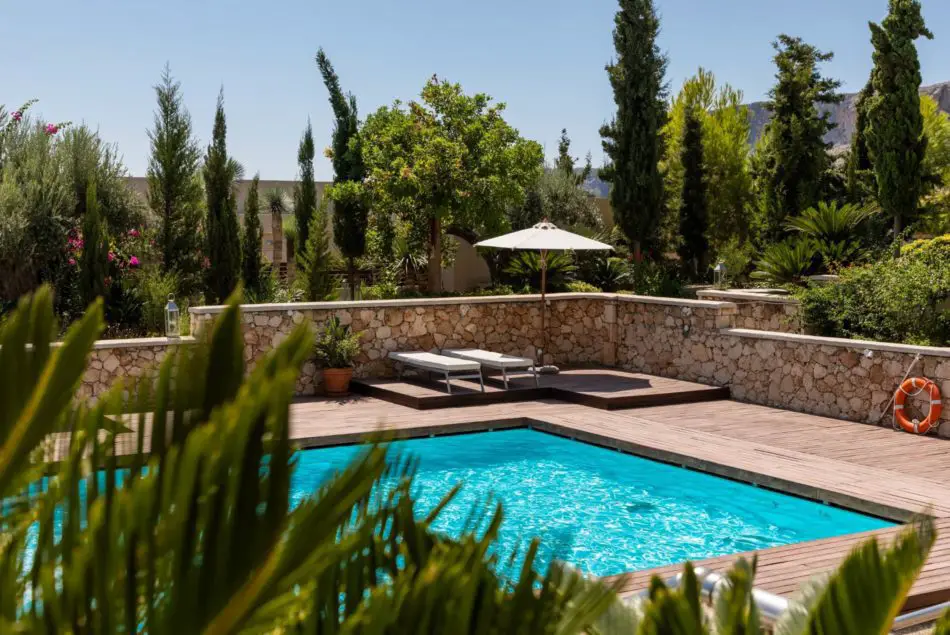
Keeping your pool clean can be a hard job that feels like a full-time career. Read on for some helpful tips to keep your swimming pool clean!
We’ve all had the experience of pure terror as a bee or wasp flies around you. Bees and wasps come out in full force during the summer time. But how do you combat this problem near your swimming pool? Today on Pool Calculator we are going to be diving into the pest problem that exists around swimming pools. This means we’ll explain why bees and wasps like to hang out with you, and ways to get rid of these pests. All of this is done to ensure you can enjoy your swimming pool with no distractions or traumatic moments that would surely ruin your peace of mind as a swimmer.
Click here for more about water bugs.
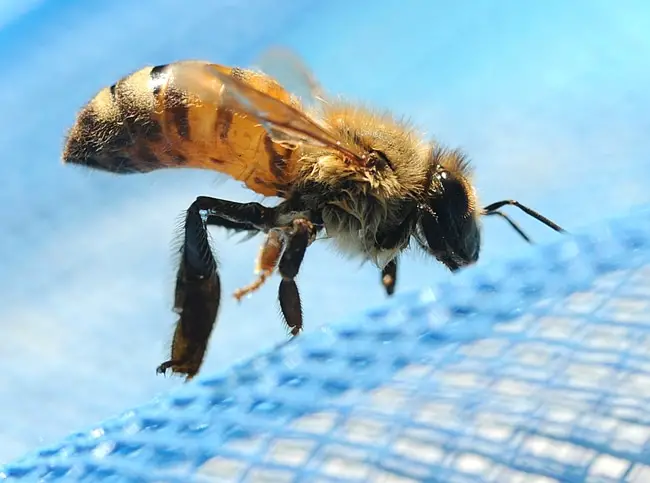
Bees and wasps get hot in the summer, just like you. And like you, one of the best ways to cool off when the weather gets hot is to take a dip in the pool. Bees and wasps use your pool to cool off, to get a drink of water, and to find refuge so they don’t get fried. (Seems like there is a missing market for insect sunscreen, right?). Ever found a bee or wasp drowning in your pool? The cause of this is likely because they wanted water or to cool down and overestimated their ability to swim. This all adds up to the fact that that bees and wasps are likely to invade your pool if you have one, and it’s up to you to get rid of the problem.
On top of using your pool as an insect oasis, these insects also have another reason to be there. Bees and wasps setting up nests in backyards is common practice. This is because there is plenty of grass, flowers, and wildlife to live around. Think of your backyard as a tiny ecosystem. Bees especially are drawn to backyards because of flowers and their need to pollinate and collect food for the hive. This means that even if the bees and wasps aren’t there to cool off, they are likely there to make use of the backyard that you work so hard to maintain.
The truth is, bees and wasps are just as scared of you as you are of them. Often when confronted with one of these insects, people get scared. This causes you to try to hit them, or to run away. This frightens the insect, and one of their reactions could be to sting you. They believe they are doing this to act in self-defense. But the truth is, if you mind your business they likely will too.
Honey bees actually will die after stinging you. This is due to the fact that when pulling out of the sting, they lose part of their abdomen. Stinging you will likely be their last resort, because their instinct is to stay alive. This all adds up to people’s phobia of bees being largely overblown, and stings being the fault of us humans. Wasps are another story. Wasps are largely territorial creatures, and don’t die when stinging. So, you might need to be weary of wasps in your backyard, but they won’t sting unless you threaten them or scare them.
There are many things you can do as pool owners to limit the interaction between swimmers and insects. Bees and wasps are a natural part of your backyard, but there are a few natural remedies and fixes to make sure a sting doesn’t ruin your day in the pool. Here are a few of the remedies we’ve found to be useful in our experience:
Bees will be drawn to this naturally. If your flowers are in another part of your yard or at least further away from pool, there will be a lower chance for a surprise interaction between you two.
If you place a few of these plants around your pool, you will notice a drop in the bees that frequent your backyard. While bees often love being near plants and flowers, they don’t like the smell of these plants.
This is a solution that can be dangerous but is best for your swimmers. Wearing protective clothing and gloves, remove the nest. This will likely cause the bees to die out or move somewhere else.
Dryer sheets have a lot of the same smell that lemongrass has. Bees do not like this smell. If you place a few of these around your pool, bees will not come around.Tip: Remember to replace these often because the smell will wear off over time.
Like stated previously, wasps are very territorial. If there is a decoy nest in your backyard the creatures will likely want to move somewhere where the land is considered “theirs”.
You can do the same procedure as with the beehive but remember wasps can sting you and not die later so it is a higher likelihood that you will be stung. Be careful.
You can use this as a “trap” of sorts with wasps. Wasps have a strange attraction to diesel fuel, and a much less odd attraction to meat (who doesn’t love a good steak?). These will both attract the wasps and you can gather them up, and either move them or kill them.
This source can be simple, like a bird fountain or water fixture. Bees and wasps need to drink water too, and if there’s a less-populated area they can get water, they will likely populate there.
With sugar water or another sweet liquid, you can attract a lot of bees and wasps. A simple DIY trick is to fill a bottle with this liquid and grease the sides, so they become trapped in there.
This may seem like an obvious solution, but many people don’t do it and wonder why their backyard is insect infested.

Keeping your pool clean can be a hard job that feels like a full-time career. Read on for some helpful tips to keep your swimming pool clean!
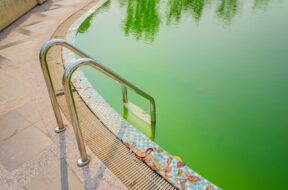
Want to learn more about algaecide? Read on to find out when to add algaecide to your pool maintenance routine and other helpful tips.
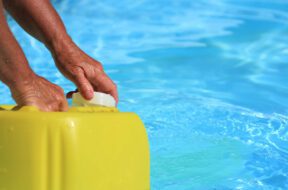
In this quick guide, we’ll answer the question “can you over shock a pool” and unveil the factors to consider when shocking a pool.
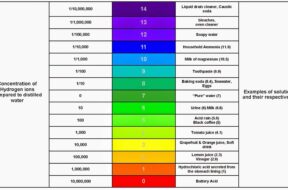
Maintaining both pH and total alkalinity in your swimming pool is important for keeping your pool properly sanitized and non-corrosive. Total alkalinity is to pH what cyanuric acid is to free chlorine. Total alkalinity stabilizes pH levels. The ideal pool pH level is 7.4 to 7.6. The ideal total alkalinity level is 80 to 120 ppm.
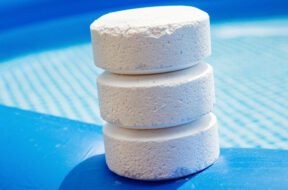
The Association of Pool and Spa Professionals recommends free chlorine levels for both swimming pools and hot tubs be kept between 2.0 and 4.0 ppm. However, the Center for Disease Control recommends free chlorine stay above 1 ppm in pools and 3 ppm in hot tubs.